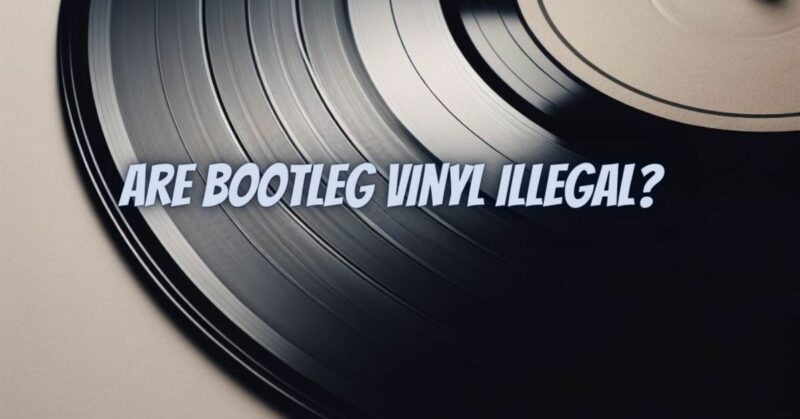In the world of vinyl records, collectors and enthusiasts often come across a term that can spark debates and discussions – “bootleg vinyl records.” Bootleg vinyl records, also known as bootlegs or counterfeit records, are unauthorized reproductions of commercially available or unreleased albums. But are these records illegal? In this comprehensive article, we will delve into the complexities surrounding the legality of bootleg vinyl records.
Understanding Bootleg Vinyl Records
Bootleg vinyl records are essentially unauthorized copies of music albums. They can encompass a wide range of genres, from rock and jazz to hip-hop and electronic music. These records are typically created without the permission of the copyright holder, who is typically the artist, record label, or music publisher.
Why Bootleg Vinyl Records Exist
Before we explore the legality of bootlegs, it’s important to understand why they exist and why some collectors are drawn to them:
- Rarity and Uniqueness: Many bootlegs contain unreleased or live recordings that are not available through official channels. Collectors are often drawn to these records because they offer a unique glimpse into an artist’s work.
- Historical Significance: Some bootlegs capture important moments in music history, such as live performances or alternative studio recordings, which may not have been documented otherwise.
- Artistic Appeal: Bootlegs often feature creative and artistic packaging and designs that can rival official releases in terms of aesthetics.
The Legal Gray Area of Bootleg Vinyl Records
The legality of bootleg vinyl records is a complex and often debated topic. Several factors contribute to this legal gray area:
- Copyright Infringement: In most countries, the creation, distribution, or purchase of bootleg vinyl records can constitute copyright infringement. Copyright law grants exclusive rights to artists and copyright holders, including the right to control reproduction and distribution. Bootleg records typically violate these rights.
- Enforcement Varies: The enforcement of copyright laws regarding bootlegs varies widely from one jurisdiction to another. In some cases, authorities may prioritize more significant copyright violations over bootleg vinyl records. However, this does not make bootlegs legal; it merely reflects differences in law enforcement priorities.
- Digital vs. Analog: The legal landscape for bootlegs can differ between analog (vinyl) and digital formats. Some countries may have stricter regulations for digital bootlegs, such as unauthorized digital downloads or streaming.
- Fair Use and Public Domain: In rare cases, bootleg recordings may be legally obtained if they fall under the fair use doctrine or if the music is in the public domain. However, these exceptions are limited and rarely apply to bootleg vinyl records.
- Personal Use vs. Commercial Sale: Some jurisdictions may permit individuals to buy bootleg vinyl records for personal use, but commercial sale is almost universally illegal. This means that selling bootlegs as a business enterprise is a clear violation of copyright law.
Ethical Considerations
Even if purchasing bootleg vinyl records may not be strictly illegal in certain situations, it raises important ethical considerations. Supporting bootlegging can harm artists and the music industry as a whole, potentially depriving them of revenue and creative control. Many artists rely on income from their music to continue producing and releasing new material, and bootlegs can undercut their livelihoods.
In summary, the question of whether bootleg vinyl records are illegal is a complex and nuanced one. While the legal implications can vary by jurisdiction and specific circumstances, the core principle remains that bootlegs typically infringe upon copyright laws. Collectors and music enthusiasts should be aware of these legal complexities and consider the ethical implications when deciding whether to purchase bootleg vinyl records. Supporting official releases and respecting the rights of artists and copyright holders is not only a legally sound choice but also a way to contribute to a thriving and sustainable music industry.


